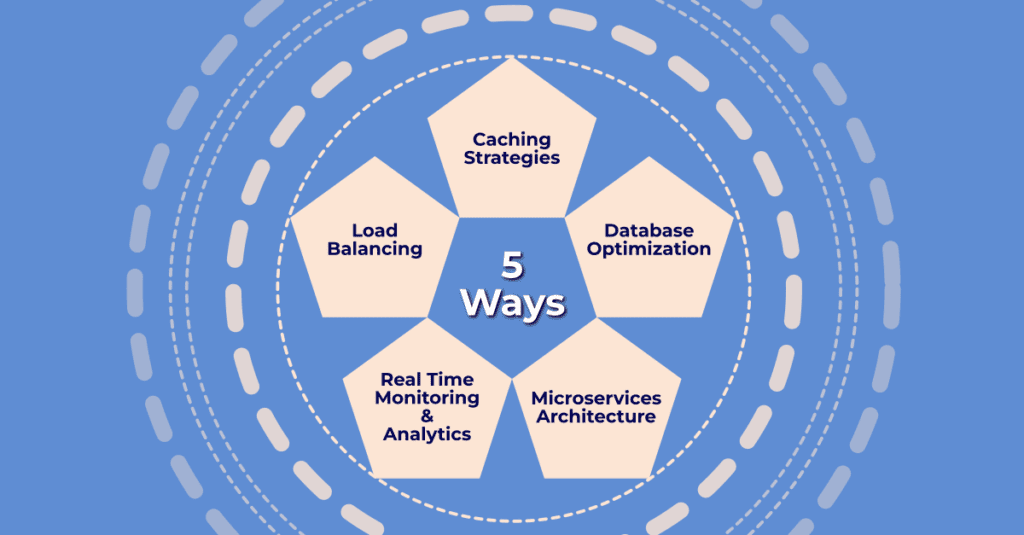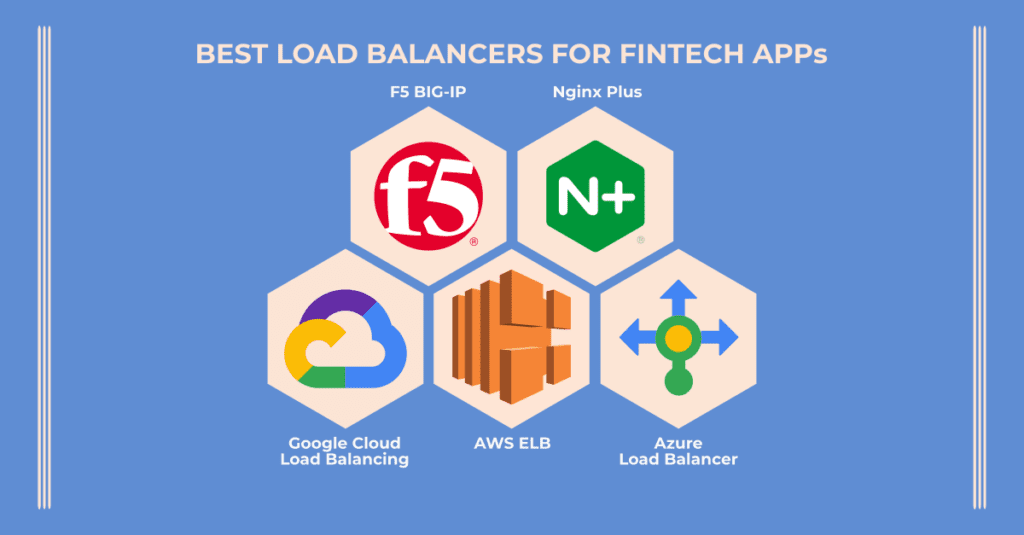Speed Up Your Fintech App: 5 Expert-Approved Techniques
If you are into Fintech App Development, we are pretty sure you must also face the challenges of balancing heavy loads of data and the demand for quick response time. The need for real-time processing for transactions, account updates, and notifications to meet user expectations for immediate action is crucial for Fintech Applications.
Add the issue of integrating live data feeds for up-to-date market information and financial metrics.
It fills the bucket, doesn’t it?
Here are 5 strategies to ensure your Fintech app operates swiftly and efficiently, balancing multiple tasks seamlessly while delivering top-notch service.

These insights are from Expert Fintech Developers with additional experience in building Stock Trading Apps, so rest assured you will find it very helpful!
1. Load Balancing
- Distribute Requests: One way to balance the load is by using advanced load balancers to evenly distribute incoming transactions and user requests across multiple servers.

Some of the best load balancers, depending on the needs of the Fintech application, are F5 BIG-IP and Nginx Plus, AWS Elastic Load Balancing, Google Cloud Load Balancing, and Azure Load Balancer.
- Dynamic Scaling: Implement auto-scaling to adjust server capacity in real-time based on transaction volumes and user activity.
- When developing Fintech apps, we first dive deep into understanding our clients’ needs and the vision driving their ideas. This thorough comprehension allows us to select the most appropriate tools and strategies to deliver optimal results.
2. Caching Strategies

Use in-memory caching to cache frequently accessed financial data and reduce latency. The best options are:
- Redis is a widely used in-memory data structure store that provides fast access to data and is ideal for caching frequently queried data, session information, and real-time analytics.
- Memcached is another high-performance, distributed memory caching system suitable for caching database queries, API responses, and session data.
3. Database Optimisation
One way to optimize database performance is by creating indexes on the commonly queried fields and partitioning the large datasets to improve query efficiency. This would in turn manage the big data that Fintech Solutions require and help streamline the whole process of management.
Another way would be to use Read Replicas. Using database read replicas to handle read-heavy operations can help reduce the load on the primary database.
4. Microservices Architecture
To make scaling of different functionalities easier, break down the app into microservices, each handling specific functionality like transactions, user management, portfolios, and real-time stock data.
5. Real-Time Monitoring and Analytics
Real-time monitoring and analytics are essential for the success of Fintech apps, whether they are payment solutions, trading platforms, or finance monitoring tools.

At Profitmatics, our extensive experience in developing a diverse range of Fintech applications from the ground up has given us a deep understanding of the unique intricacies and requirements of each type. We ensure you receive cutting-edge technology that perfectly aligns with both your needs and technical specifications.
Check Out Our Fintech Apps Now!
Here are some of the Expert Chosen Tools to make your Application work seamlessly:
- New Relic, Datadog, AppDynamics, and Dynatrace are excellent choices for application performance monitoring.
- For open-source and customisable solutions, we would suggest Prometheus with Grafana and Elastic Observability, as it offers both flexibility and scalability.
- For real-time observability and interactive querying, Honeycomb.io and Instana are highly effective.
Since you have read till now and are giving your time and effort, here is one bonus point for making that Fintech App of yours work seamlessly.
Bonus:
Content and Data Compression
- Compressing data transmitted over the network will reduce bandwidth usage and improve load times.
Also, use efficient data formats like JSON or Protobuf to minimize data payload sizes and speed up processing.
These five (and one bonus) tips are articulated by our experts to make sure you arrive at the right tools in order to make your Fintech Solutions work better.
If you want to lose all hassle and build a fully efficient Fintech App with all the latest features, catering to the demands of the Fintech Industry, we are here to share our expertise!
Connect with us to build something revolutionary in the already-trending Fintech Industry.
One comment
Leave a Reply
You must be logged in to post a comment.
[…] Speed Up Your Fintech App: 5 Expert-Approved Techniques […]